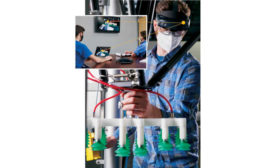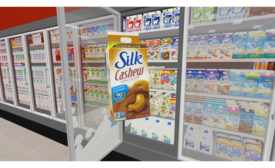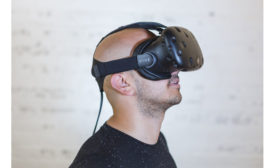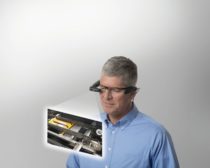Home » Keywords: » virtual reality technology
Items Tagged with 'virtual reality technology'
ARTICLES
Study: Next-generation supply chain market to hit $75B by 2030, driven by AI, blockchain, IoT, robotics and more
Major drivers of a digital supply chain include demand for greater visibility and transparency in supply chain data process, faster adoption of IoT, increasing investment in supply chain innovation and rising demand from e-commerce.
December 4, 2019
Symphony RetailAI, InContext Solutions partnership introduces immersive virtual reality testing for AI-powered store planograms
Symphony RetailAI’s space planning solutions are enhanced through InContext Solutions’ advanced virtual reality (VR) technology.
August 29, 2019
Optimize the freezer aisle with virtual reality, digital technology
When brands are better able to predict what new products will interest shoppers and where to place these innovations in store, they have the data to power a more efficient supply chain from warehouse to checkout.
July 16, 2019
Study: Virtual reality is changing the way consumers interact with brands
This report tracks how retailers and other merchants are incorporating VR to give themselves an edge over their competitors.
January 29, 2019
Food scientists study how virtual reality can alter consumers’ tastebuds
Panelists rated the pungency of the blue cheese significantly higher in the cow barn setting than in the sensory booth or the virtual park bench.
October 4, 2018
AFFI announces collaboration with EyeSucceed
EyeSucceed brings together the power of assisted reality (AR) and smart glass technology to transform how the food industry implements food safety practices and address real-world challenges.
April 30, 2018
Pregis develops virtual reality training program to improve consistency, efficiency of protective packaging
These 360-degree virtual reality videos run approximately two minutes.
February 9, 2018
Get our new eMagazine delivered to your inbox every month.
Stay in the know on the latest food and beverage manufacturing markets.
SUBSCRIBE TODAYCopyright ©2024. All Rights Reserved BNP Media.
Design, CMS, Hosting & Web Development :: ePublishing






